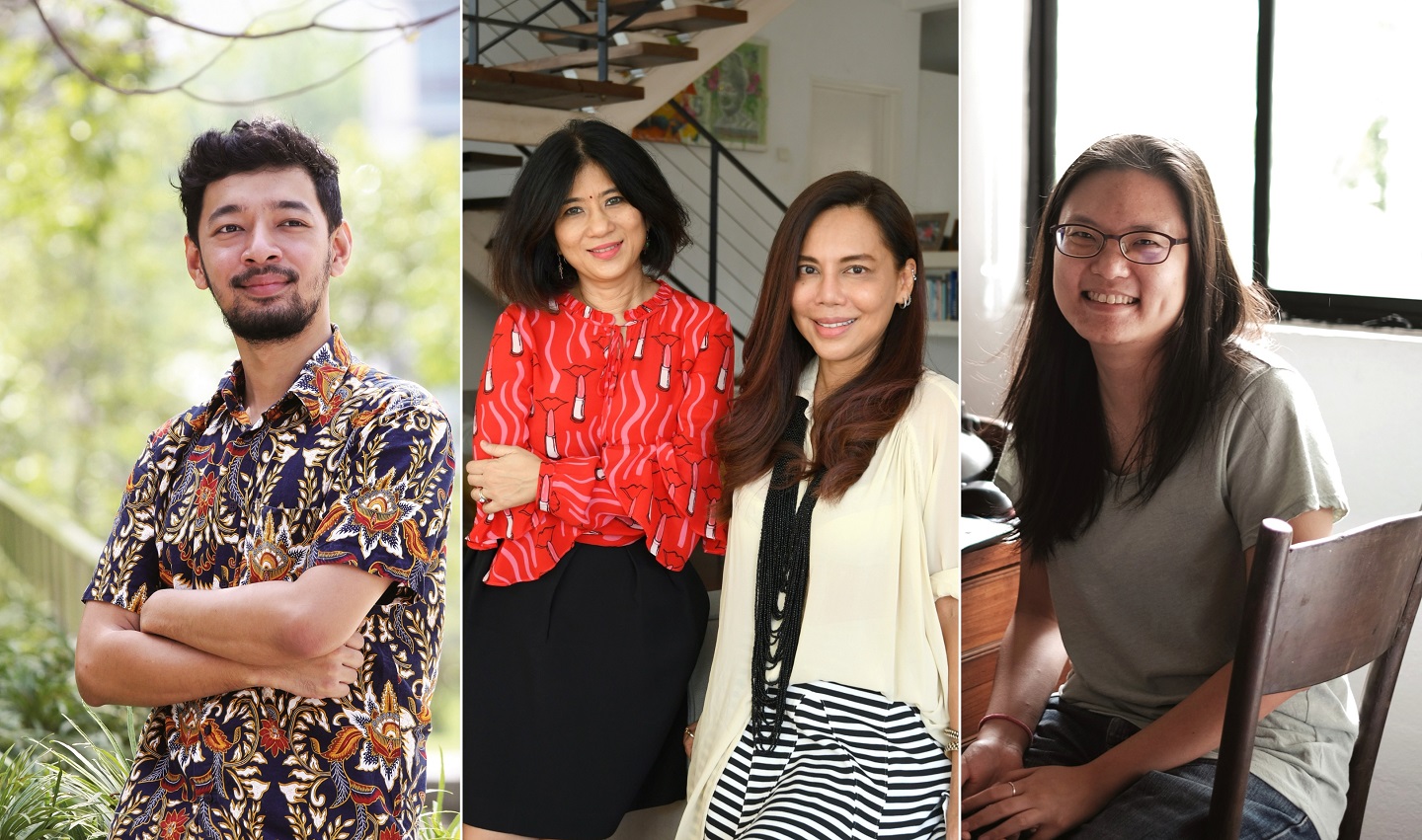
Deric Ee; Viji Krishnamoorthy and Shireen Zainudin and Anna Tan (Photo: Kenny Yap/The Edge; Mohd Izwan Mohd Nazam/The Edge; Anna Tan)
The Lockdown Chronicles
Edited by Shireen Zainudin + Viji Krishnamoorthy
History books will detail the facts and figures, but the fallout from the pandemic is more than just statistical. Immortalising the harrowing, hopeful and occasionally humorous personal stories surrounding Covid-19 is The Lockdown Chronicles, an anthology initiated and edited by Shireen Zainudin and Viji Krishnamoorthy.
Long-time friends who cannot remember how they met — “It’s the weirdest thing, we just cannot pinpoint this. It was as if we’d walked past each other several times and that thing in life happened, where you brush against people and find a connection,” says Shireen — their relationship was founded on a love of reading.
Both pursued writing individually. It was not until the lull in life that was the lockdown that the idea to collaborate on a project struck them.
“I saw, read and heard other people’s experiences about lockdown and thought it would be fascinating to compile them,” says Shireen. “Viji and I approached people whom we thought had interesting stories about this period, or who knew people who did, and asked them to contribute. We wanted broad angles and a variety of perspectives and writing styles, so we collected stories from students, frontliners and refugees. There were stories from Penang, those set in the tribal highlands of Sarawak and even one by a Malaysian living abroad.”
the_lockdown_chronicles.jpg
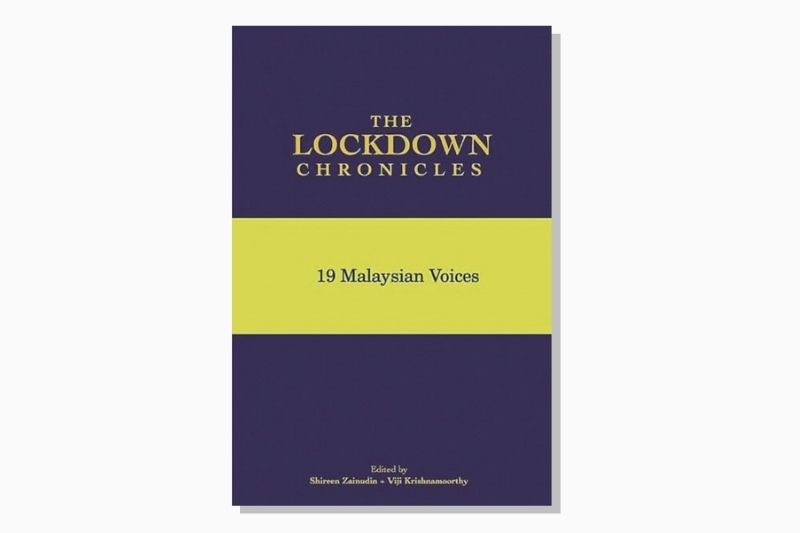
“It was about people with unique voices and stories, who had something different to bring to a book like this,” says Viji. “It would not have been possible to have all Malaysian voices here, but we think we got a fair representation. Some were first-time writers while others clearly had more experience. This made the reading and editing process interesting because the novice’s storytelling tends to be more organic but may need a little guidance or polishing. It was stressful to the point of hair-pulling sometimes, but it was great that so many people were ready to do this, and were enthusiastic about it.”
The Lockdown Chronicles comprises 19 stories, the number chosen as the suffix of Covid-19. In addition to work by the editors themselves, contributing writers include known literary names such as Pauline Fan and Marc de Faoite alongside singer-songwriter Pete Teo and Hospis Malaysia general manager Tham Su Ming. The foreword was written by The Malaysian Insight editor Jahabar Sadiq while Melbourne-based contemporary artist Anurendra Jegadeva contributed a bonus cartoon. Cumulatively, it sketches out life under lockdown for Malaysians of many walks of life and commemorates this rather bizarre year in our corner of the world during a shared universal experience.
“Writing is so subjective,” says Shireen. “There are definitely stories that are technically stronger than others, but they all have their own heart and appeal. And different things resonate with different people. I think stories will always find their readers.”
20210406_peo_viji_shireen_6807_izw.jpg
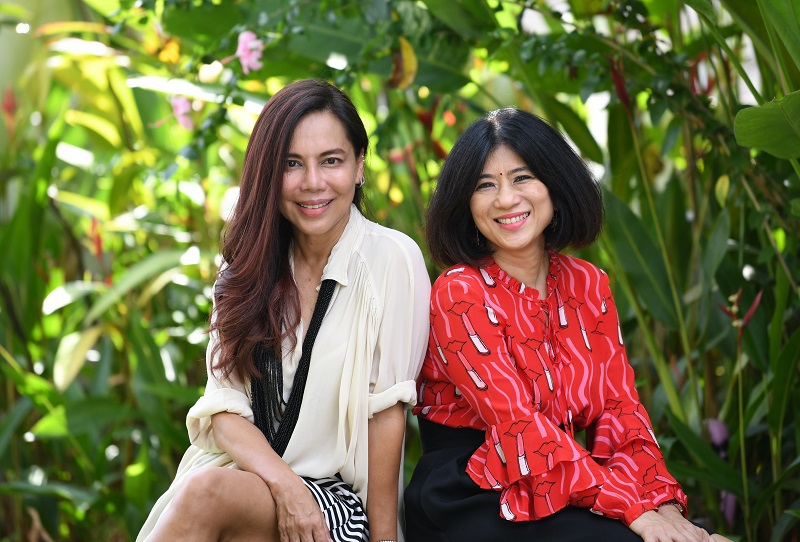
“It’s such a personal thing, isn’t it — the relationship between the reader and the story?” muses Viji. “You can’t have an anthology of 19 pieces that will equally appeal to everyone. But take it in the spirit in which we put it out there, as a collection of voices in a time that was very different and disruptive.”
A reader with no frame of reference about Malaysia would be struck by a very common element running throughout the anthology: the local love affair with food. “You will quickly notice that!” laughs Shireen. “Almost every story has some mention of food, and I think that’s relatable, even if you’re not familiar with the Malaysian relationship with food.”
The duo so enjoyed their collaboration that they are working on another project together, though the details are still under wraps. Viji, who seems to have been especially productive during the pandemic, will also be releasing a novel in August. 912 Batu Road is a work of historical fiction about a migrant family from South India who arrives in Penang, weaving present-day, wartime and “super past” stories as told through letters written by the family’s grandfather.
“Putting together The Lockdown Chronicles was definitely a new and exciting experience for us,” says Shireen. “The reception has been so positive. I don’t know if we’ll ever edit an anthology again, but we are definitely open to whatever comes next.”
KL Noir: Magic
Edited by Deric Ee
What do a bartender, a grieving mother and a vampire have in common? They all feature in KL Noir: Magic. Previous editions of the notorious KL Noir series by Buku Fixi extracted their titles from the colours of the Malaysian flag, but the departure from tradition marks a new direction in narrating stories from the underbelly of Kuala Lumpur.
Fixi’s Amir Muhammad edited the debut anthology, KL Noir: Red, but entrusted later editions to others. The fifth book, Magic, was overseen by writer and non-fiction editor Deric Ee, who decided the time was ripe for a new local definition for noir.
“We received over 200 submissions and at least 70 of them were about crime, graphic violence or straight-up murder,” he says. “I was a bit taken aback by some of the stories, which were quite problematic in their vengeance against victims of different gender or race, but realised it’s a cultural thing. We interpret ‘noir’ as physical and aggressive, but it can be quiet, seedy or sly.
kl_noir_magic.jpg
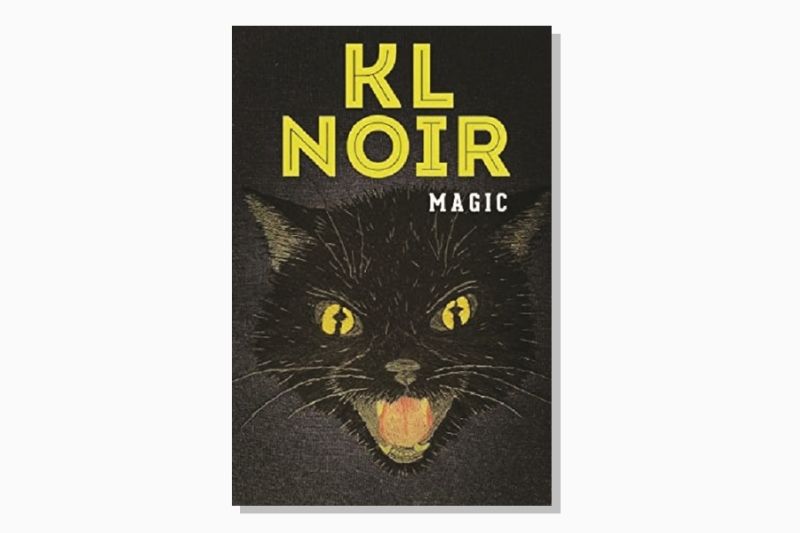
“For this instalment, we decided to focus on noir as moral ambiguity, because noir can and does exist in the open, in daylight,” he continues. “And with growing awareness around what can and should not be said, it’s not enough to just write about killing people. We tried to look for stories that kept up with the times and better reflected KL of today. The publisher said it’s the mellowest book in the series, and I like that, that it’s slightly melancholic and weird.”
Magic might suggest a proliferation of dark arts and creatures of the night, and while the occasional supernatural being does rear its head, the bulk of the magic is quieter. “I wrote in the foreword that its definition goes beyond what we know as magic today; in ancient writing, the unknown or yet to be discovered, like technology, was also assumed to be magic because we did not have the vocabulary or comprehension to describe and understand it.”
By and large, the anthology seems to celebrate that, uncommon perspectives, thoughts that go unsaid or silent motives. The cast reflects the diversity of the capital, from single and widowed women to taxi drivers, drug users, the LGBTQIA community and the HIV-positive. Some of the 20 stories are by familiar names in the writing scene — Sharmilla Ganesan and Sukhbir Cheema, for instance — while others are breakout names or relatively new to publishing, including Lily Jamaludin, Colin Yeoh and Joshua Lim. Most stories are set in the present day but a couple, including an evocative piece by Muthusamy Pon Ramiah about life in the Indian community, are set in eras long gone. Although the exchange that takes place in his story is relatively mundane, it showcases the extraordinary decisions and struggles people make in everyday life.
20210405_peo_deric_ee_editor_of_kl_noir_magic_1_ky.jpg
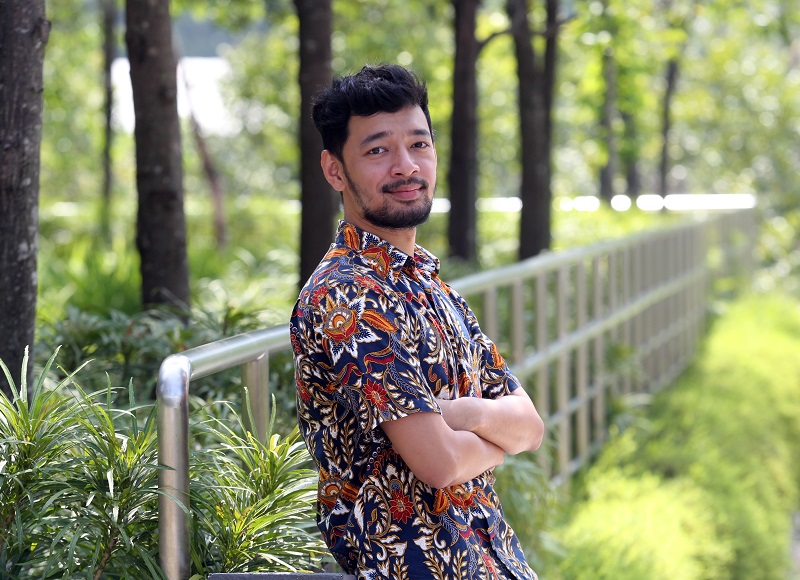
“His had a flair so different from the rest; it came from a very real, gritty place,” says Ee. “And discovering these narratives and voices was one of the greatest privileges of working on this anthology. I think people have struggled for opportunities to showcase their talent, especially newer writers, but there has been an increase in calls for submissions for anthologies of that. That may or may not have been spurred by the pandemic; it’s hard to tell. People were simply writing more this past year as they struggled to find ways to survive and thrive in such disruptive times, and creativity became all the more precious as a mode of expression.”
Marketing the anthology has been particularly trying in these times with avenues for promotion severely curtailed.
“We have to rely almost entirely on social media, which is challenging, when before, we would participate in or host events to promote the book,” says Ee. “But everyone is having to change how they do things. Lana Del Rey released a book of 30 poems last year called Violet Bent Backwards over the Grass and, for a short time, it was available on Spotify as a spoken word album with music by Jack Antonoff to set the mood. The writing scene, or how literary texts are presented, is changing and we have to look for new ways to reach people.”
Music is clearly a big influence on Ee, who references albums in the way KL Noir: Magic was laid out. “It has to flow, from one story to another. Certain sections have to pack a punch, there needs to be alternating rhythms and tempos,” he says. “You might prefer to dip in and out of the book, but if you were to read it in one go, it takes you on a journey through KL.”
Home Groan: A NutMag Anthology
Edited by Anna Tan
Launched online in December, Home Groan: A NutMag Anthology riffs off the pun in its name to accumulate stories of growing pains and groan-inducing pains alike related to life in Penang. NutMag is an annual zine published by MyWritersPenang, an active community of literary enthusiasts, and is spearheaded by a small team with Anna Tan as primary editor.
“We usually publish chapbooks, but we wanted a bigger body of work to celebrate our fifth anniversary,” says Tan. “Home Groan had been planned since 2019. The title was inspired by the complaints I came across online following the change in government and the string of broken promises by them. It also plays off the word ‘homegrown’, celebrating our Penang-centric premise.”
home_groan_a_nutmag_anthology.jpg
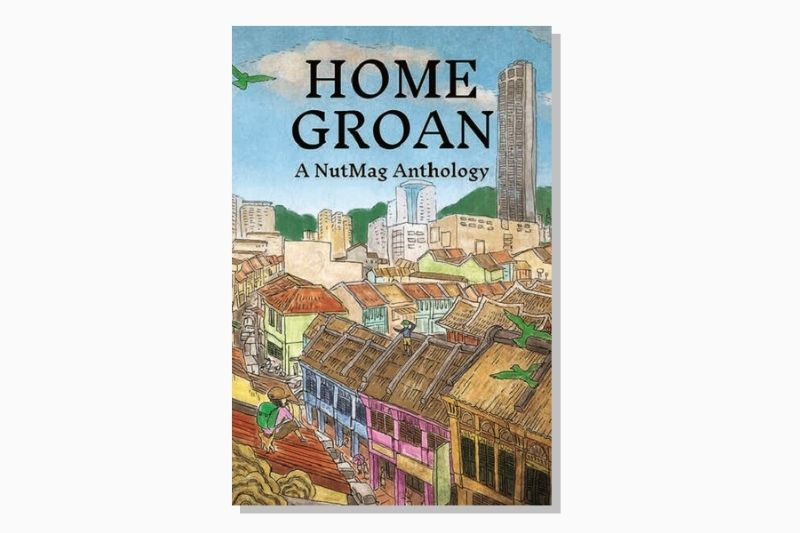
The decision to exclusively support those born or based in Penang was due to a lack of opportunities for writers in the northern state. Tan, who is also president of the Malaysian Writers Society, is one of the three founders of NutMag.
“We wanted to give writers a platform to showcase and publish their work,” she says. “We hosted write-ins and readings, and introduced chapbooks as a way for the audience to take a piece of these experiences home.”
The anthology marks five years of sustained effort and growth in this sphere through its collection of short stories, non-fiction essays and poetry. All three mediums have featured in NutMag, though essays have historically been harder to come by.
“We were quite surprised at the volume of non-fiction submissions, but it’s nice that people want to talk about these things,” says Tan, who previously edited Fixi Novo’s Love in Penang anthology. “There is a nice diversity of backgrounds and ideas here, with nostalgia tinging many of the stories, not just among the more senior writers but even in a submission by a college student about the transition from his childhood in a kampung in the 1990s to his current urban college environment.”
Since “groan” was instated in the title, there is a fair bit of exasperation in the anthology about current affairs or state of things, but a fondness for Penang flows through nonetheless from cover to cover. The editor credits the versatile interpretation of the title with supplying the collection a myriad of observations or references especially dear or exclusively familiar to Penangites.
dscf1118_1.jpg
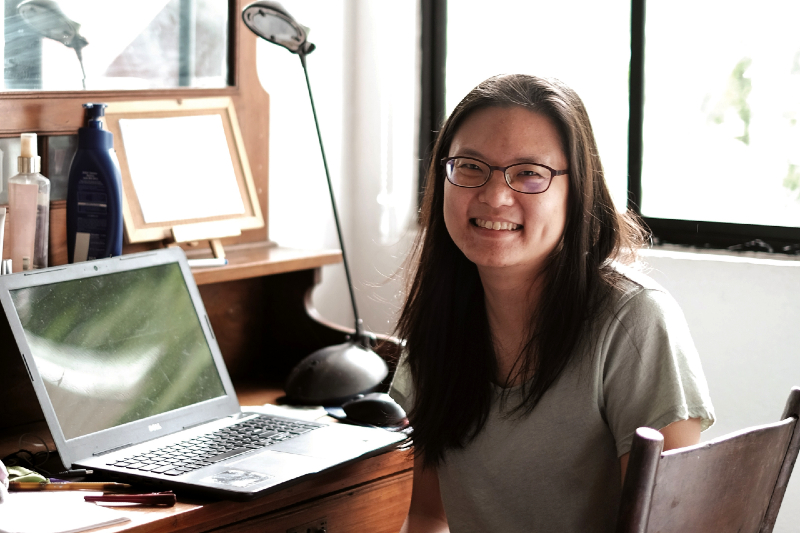
“I wanted to make sure the Penang voice was given a platform because it can be very distinct,” she says. “You can sometimes distinguish between mainlanders and islanders purely by what they write. This might draw some flak, but I think the islanders can be insular — some tend to deny the mainland is just as much a part of Penang, which, of course, upsets the mainlanders. There is a deliberate blindness to mainlanders and a bias towards the island. We made certain we chose stories that represented both the island and mainland, because island-based writers tend to only talk about landmarks within the locale — Batu Ferringhi and Komtar, for instance — whereas mainlanders draw from a wider range of geographical references. It’s something Penangites would definitely pick up on.”
Two challenges defined the experience: low entry submission rates in the early days and the struggle to raise funding. The deadline for submissions was extended to encourage entries, which worked. And although NutMag fell short of its goals by raising over RM5,000, accomplished through crowdfunding and early purchases of the book, the Malaysian Writers Society filled the gap to allow a print of 500 copies. It was an uphill task much of the way and while the experience was rewarding, Tan is hesitant to commit to a second anthology in the next few years.
“Until a second edition is necessary, we’re going to focus on our NutMag chapbooks. Submissions are open for this year’s issue, with the theme ‘Lost’,” continues Tan. “This too is open to interpretation, encompassing, say, a sense of loss or being lost, which many of us have experienced this past year. It can be as literal or as metaphorical as you like, since the spectrum of experiences can be immense.”
This article first appeared on Apr 12, 2021 in The Edge Malaysia.


